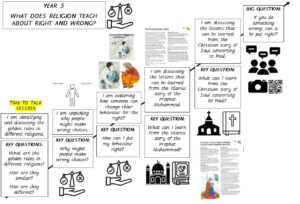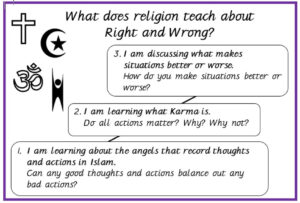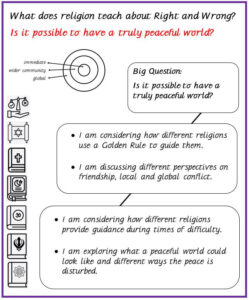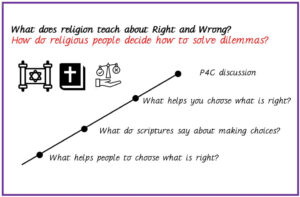Religious Education
The principal aim of R.E. at Blue Gate Fields Junior School is to engage pupils in systematic enquiry into significant human questions which religion and worldviews address, so that they can develop the understanding and skills needed to appreciate and appraise varied responses to these questions, as well as develop responses of their own.
Children perceive R.E. at Blue Gate Fields Junior School as:
“RE explores big questions about life, to find out what people believe and what difference this makes to how they live, so that pupils can make sense of religion, reflecting on their own ideas and ways of living.”
R.E. teaching and learning enables our children to:
A. Know about and understand a range of religions and worldviews.
B. Express ideas and insights about the nature, significance and impact of religions and worldviews.
C. Gain and deploy the skills needed to engage seriously with religions and worldviews.
These aims are structured around the following strands:
• Believing (Religious beliefs, teachings, sources; questions of meaning purpose and truth)
• Expressing (Religious forms of expression; questions of identity, diversity and belonging)
• Living (Practices and ways of living; questions of values and commitments)
At Blue Gate Fields, both the Infant and Junior school follow Tower Hamlets Agreed Syllabus 2022-2027. This ensures that there is continuity and progression building on children’s prior learning.
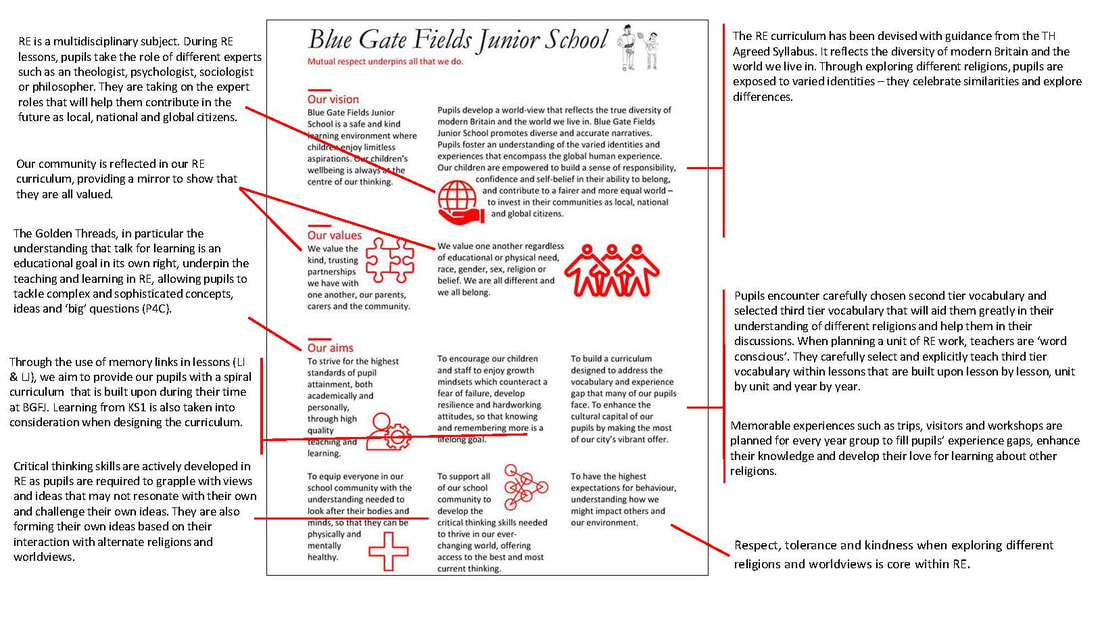
Whole School Big Question: What does religion teach about right and wrong?
As a way to enrich and deepen pupils’ understanding of religion as well as making links to our PHSE unit of work on Anti-bullying and the Equality Act, we had a whole school focus on right and wrong with the overarching question being: What does religion teach about Right and Wrong?
A sequential unit of work has been devised that uses prior knowledge and experiences of pupils to develop and extend understanding of religion.
Below is the Learning Journey Overview that breaks the unit down into ‘Big Questions’ for each year group, encouraging the children to think critically, creatively, collaboratively and caringly around the theme of right and wrong.
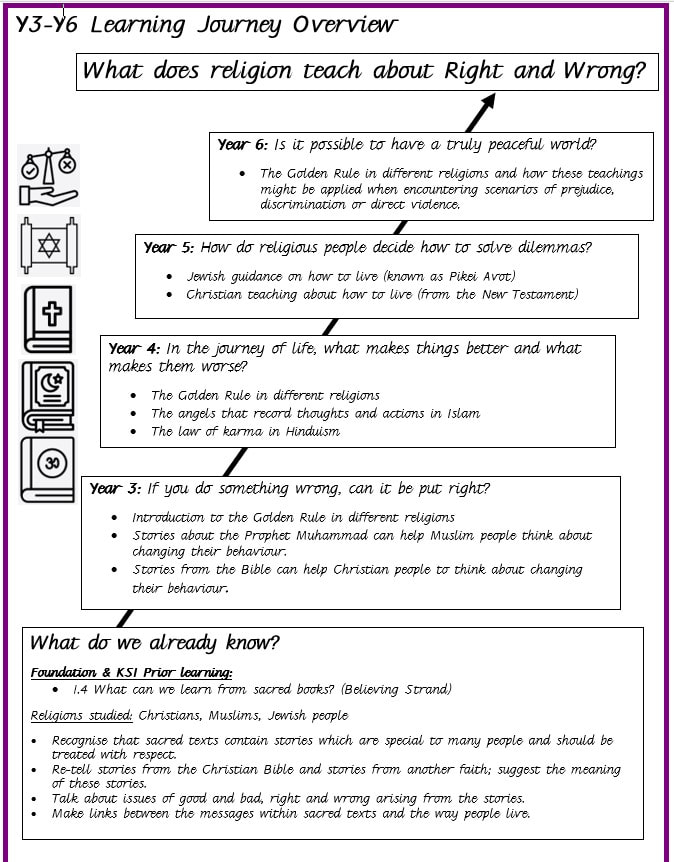
Alongside this is the Learning Journey for each year group that breaks down their individual ‘Big Question’ into manageable key questions that the pupils explore during lessons.
In order to aid memory recall, within the Learning Intention, links are made explicitly across year groups’ RE curriculum content and other subject areas. These provide a point of discussion and allow pupils the opportunity to build and enhance their schema.
